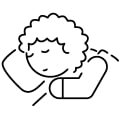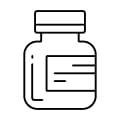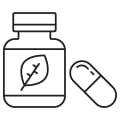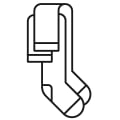Postpartum Hemorrhage: Care Instructions
Severe bleeding from childbirth, or bleeding that causes symptoms of too much blood loss, is called a postpartum hemorrhage. Early signs include having a racing heartbeat and feeling dizzy, weak, or tired. It's an emergency. It's often caused by the uterus not tightening enough after birth. It may also be caused by injuries from birth. In some cases, it's caused by a piece of the placenta that stays in the uterus after birth.
Caring for yourself afterward

Get plenty of rest.

Take medicines as prescribed.

Talk to your doctor or midwife about whether you need to take iron pills or a multivitamin.

Wear compression stockings if your doctor or midwife recommends them.

Eat foods that are high in iron and vitamin C. Good sources of iron include red meat, beans, leafy green vegetables, and iron-fortified breakfast cereals. For vitamin C, try citrus fruits.

Watch your bleeding closely. You should see less of it over the next 6 weeks.

Use pads for bleeding. Don't use tampons or cups until your doctor or midwife says it's okay.
When should you call for help?
Call 911 anytime you think you may need emergency care. For example, call if you:
- Have thoughts of harming yourself, your baby, or another person.
- Pass out.
- Have chest pain.
- Are short of breath.
- Cough up blood.
Call your doctor, midwife, or nurse advice line now or seek immediate medical care if you:
- Have heavy vaginal bleeding (soaking through one or more pads in an hour, or passing blood clots bigger than an egg).
- Have a fast or irregular heartbeat.
- Have new or worse belly pain.
- Feel so tired or weak that you cannot do your usual activities.
- Feel dizzy or light-headed.
- Have pain in your calf, back of the knee, thigh, or groin.
- Have redness and swelling in your leg or groin.
- Have a fever.
- Have vaginal discharge that smells bad.
Watch closely for changes in your health, and be sure to contact your doctor, midwife, or nurse advice line if you:
- Feel sad, anxious, or hopeless for more than a few days.
- Have vaginal bleeding that's not decreasing.
Follow-up care is a key part of your treatment and safety. Be sure to make and go to all appointments, and call your doctor or nurse advice line (811 in most provinces and territories) if you are having problems. It's also a good idea to know your test results and keep a list of the medicines you take.
Where can you learn more?
Go to https://www.healthwise.net/patientEd
Enter P331 in the search box to learn more about "Postpartum Hemorrhage: Care Instructions".
Adaptation Date: 12/12/2023
Adapted By: Alberta Health Services
Adaptation Reviewed By: Alberta Health Services
